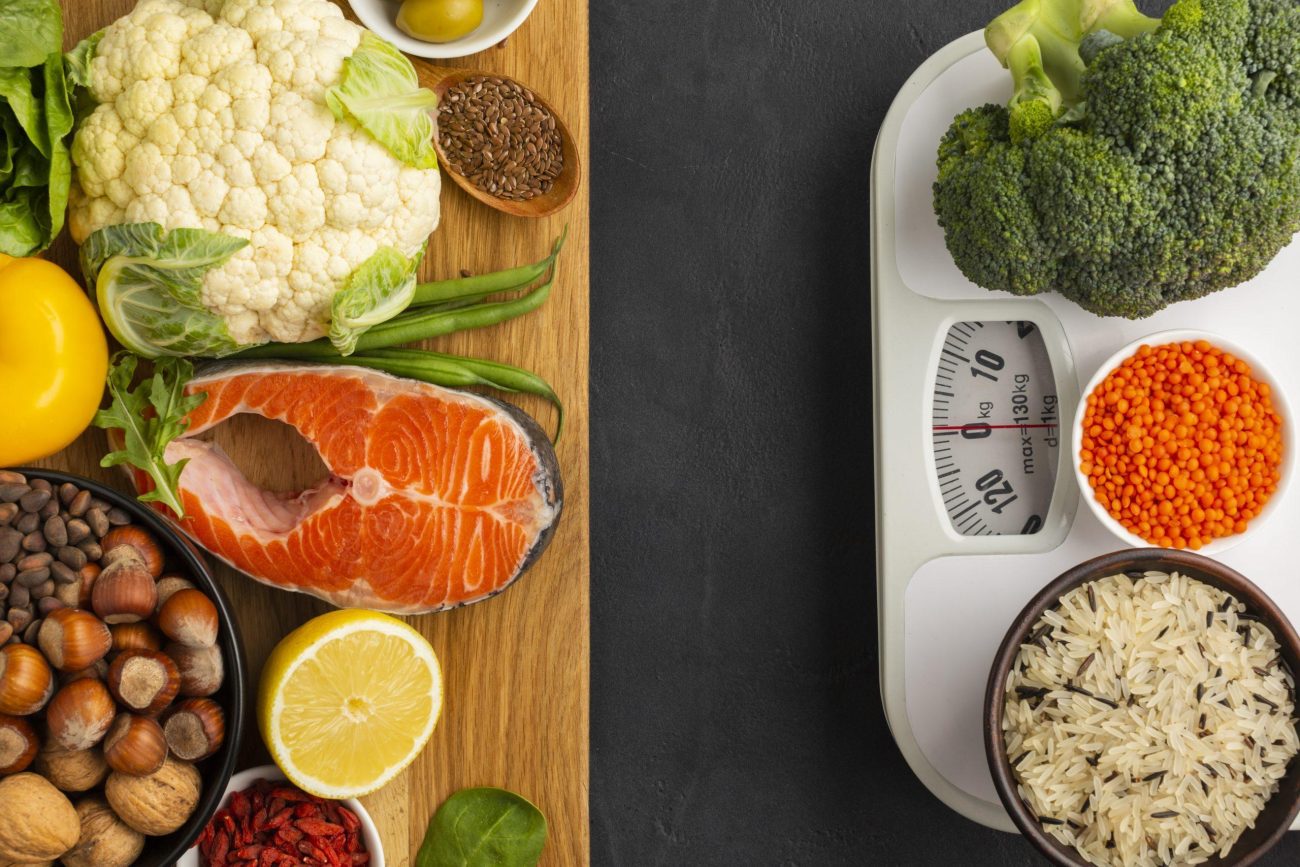Stop Making These Fitness Mistakes?
We all have promised ourselves a fitness regime, whether it be getting influenced by Models or Actresses to have toned figurines or having an unhealthy lifestyle for a prolonged period. Well.. well
We all have promised ourselves a fitness regime, whether it be getting influenced by Models or Actresses to have toned figurines or having an unhealthy lifestyle for a prolonged period.
Well.. well…
Having a resolution is one thing, and planning and getting the right fitness routine is another.
Today, numerous resources and preachers are ready to bombard you with the right kind of regime, which may or may not correlate with our ultimate goals.
So, what’s the right fit for you?
Confused?!
Don’t worry; we have got you covered.
We have curated the list of a few common fitness mistakes people generally make, which will give you a broader and clear perspective of what to follow;
Winks ***
Let’s get started…
- Choosing Processed Foods low in Calories and “Nutrition.”
Many people believe that eating processed low-fat or “diet” meals are a good option because of their potential to aid in weight loss.
In reality, they could have adverse implications!
Unfortunately, most of these items use excessive sugar to enhance their flavor.
Rather than opting for low-fat or “diet” foods, eating a variety of whole, minimally-processed foods are preferable.
Choose canned or frozen fruits and vegetables whenever possible because they are low in fat and high in nutrients.
- Low Protein Intake
If you’re attempting to shed pounds, don’t compromise on the protein.
Renowned researchers have highlighted the positive impact of protein on weight loss, such as good metabolic rate, feeling energized, reduced appetite, etc.
Be mindful to include a high-protein element with each meal. Remember that there are many more sources of protein besides meat and dairy.
In addition to these, other wonderful and inexpensive choices include beans, lentils, quinoa, and flaxseeds.
- Underestimating the power of weight-training
Losing weight is considerably aided by engaging in resistance exercise.
Research indicates that lifting weights is one of the most efficient exercise methods for muscle building and metabolic enhancement.
It enhances muscle mass, physical performance, and fat removal, making you overall fit.
- Consuming an abnormally high or low-calorie diet
Getting leaner requires being in a calorie deficit. That’s why it’s important to increase your metabolic rate while decreasing caloric intake.
You might be eating a lot of nuts and fish, which are both nutritious and calorie-dense. The key is to eat moderately.
But cutting calories too much can have the opposite effect. Very low-calorie diets have been linked to decreased muscle mass and slowing the metabolic rate.
- Overlooking how many calories you burn
Many people are trying to get fit; find delight in checking the calorie count on their smartwatches at regular intervals. The ability to track your progress in training is essential.
However, remember that many calorie counters overstate your actual calorie expenditure.
Another concern is that some people who keep tabs on their caloric expenditure mistakenly believe they can make up for it with food later.
Having burned 200 calories doesn’t imply you deserve 200 more calories to eat.
Focus on improving your workout performance and maintaining your calorie deficit rather than counting calories burned.
- Overeating, even when you’re not hungry
People have been advised for a long time to eat every few hours to avoid getting hungry and have their metabolism slow down.
Unfortunately, this can cause people to eat too many calories throughout the day.
You might also end up not feeling full..!
Successful nutritionists seem to adhere to the “eat when, and only when, hungry” principle.
- Hopes that are too high
Setting and working toward goals like fitness and healthier lifestyles is a great way to stay motivated. Setting oneself up for failure because of unrealistic goals is a surefire way to fail.
Your chances of successfully losing weight will improve if you set more reasonable goals.
Dropping twenty percent of your body weight in a particular period may seem ambitious and feasible. The likelihood of success increases, and you’ll have a better time achieving it.
- Not focusing on label ingredients
Not paying attention to the labels can result in additional calories and unhealthy condiment intake.
Many foods are labeled with healthy-sounding claims.
These can give you a false notion of security about a product.
On the back of a food container, there is a label that lists the ingredients, calories, and nutrients. Make sure you understand how to read labels the right way.
- Not keeping a record of what you binge
Eating healthy foods is a good way to lose weight. But you might still be eating more calories than you need to if you want to lose weight.
Also, you might not get enough protein, fiber, carbohydrates, and fat to help you lose weight.
Furthermore, most online tracking sites and apps let you record your daily exercise and what you eat.
Reap the benefits out of it…
- Not getting the “Beauty Sleep.”
It could be how you spend your evenings if you’re having trouble getting past a fitness plateau. An unhealthy lifestyle can happen if you don’t get the recommended seven to eight hours of sleep at night, mindlessly snack before bed, or eat a heavy dinner.
Do something relaxing and calm when you get home from work at night to help you wind down.
You can declutter your mind for peaceful sleep by taking a warm shower, reading a good book, writing in a journal, or meditating.
It will help you make smarter and fit decisions about your lifestyle.
Conclusion
As we have already ascertained, our lifestyle plays a substantial role in the success or failure of our fitness journey.
Our bodies, and the process of improving them, are incredibly complex and intricate. Trying to lose weight or be fit can be frustrating if you can’t find any advice you can trust.
Before taking action further, gathering as much information as possible about it is vital.
In addition, we recommend consulting a professional to ensure you are properly following a fitness regime.



binance May 5, 2024
Your article helped me a lot, is there any more related content? Thanks!
Anthonyemach June 1, 2024
my website keyless executor
Raymondhit June 3, 2024
Get the facts sol wallet
Εγγραφ στο Binance US June 11, 2024
Can you be more specific about the content of your article? After reading it, I still have some doubts. Hope you can help me.
JosephEffoM June 12, 2024
read this post here Sandbox AVATAR
LewisUnfow June 23, 2024
you can try these out https://trezor-wallet.at/2023/11/14/ensuring-cryptocurrency-security-an-overview-of-trezor-wallets-measures/
Robertfup June 24, 2024
best site https://metamask-wallet-web3.com/2023/11/16/maximizing-efficiency-tips-and-tricks-for-sending-nfts-using-metamask/
AnthonyMob June 24, 2024
Blacksprut онион – Blacksprut зеркало, Блэкспрут ссылка
Jameskeell June 30, 2024
browse around these guys https://98toto0228.com
BryantNeoms July 3, 2024
спрут как попасть на сайт – блэкспрут ссылка тор, блек спрут оригинальная ссылка
Lista Escape Room July 5, 2024
hey there and thank you for your info – I’ve certainly picked
up anything new from right here. I did however expertise
several technical points using this web site, as I experienced to reload the website a lot of times previous to I could get it to load properly.
I had been wondering if your web host is OK? Not that I am complaining,
but sluggish loading instances times will very frequently affect your placement in google and can damage your
high-quality score if advertising and marketing with Adwords.
Anyway I’m adding this RSS to my e-mail and can look
out for a lot more of your respective interesting content.
Make sure you update this again soon.. Najlepsze escape roomy
web page July 7, 2024
This piece of writing will help the internet visitors for building up new
website or even a blog from start to end.
"oppna ett binance-konto July 19, 2024
Can you be more specific about the content of your article? After reading it, I still have some doubts. Hope you can help me.
Fort lauderdale July 21, 2024
I was more than happy to find this website. I need to to thank you for your time for this fantastic read!! I definitely loved every little bit of it and i also have you saved to fav to check out new information on your web site.
asbestos abatement ottawa July 22, 2024
This website was… how do I say it? Relevant!! Finally I have found something which helped me. Thanks a lot.
Mushroom chocolate bar July 22, 2024
I absolutely love your website.. Great colors & theme. Did you make this website yourself? Please reply back as I’m wanting to create my very own site and would love to know where you got this from or exactly what the theme is called. Kudos!
lehenga choli July 24, 2024
Very good article. I definitely appreciate this website. Thanks!
código binance July 24, 2024
Thank you for your sharing. I am worried that I lack creative ideas. It is your article that makes me full of hope. Thank you. But, I have a question, can you help me?